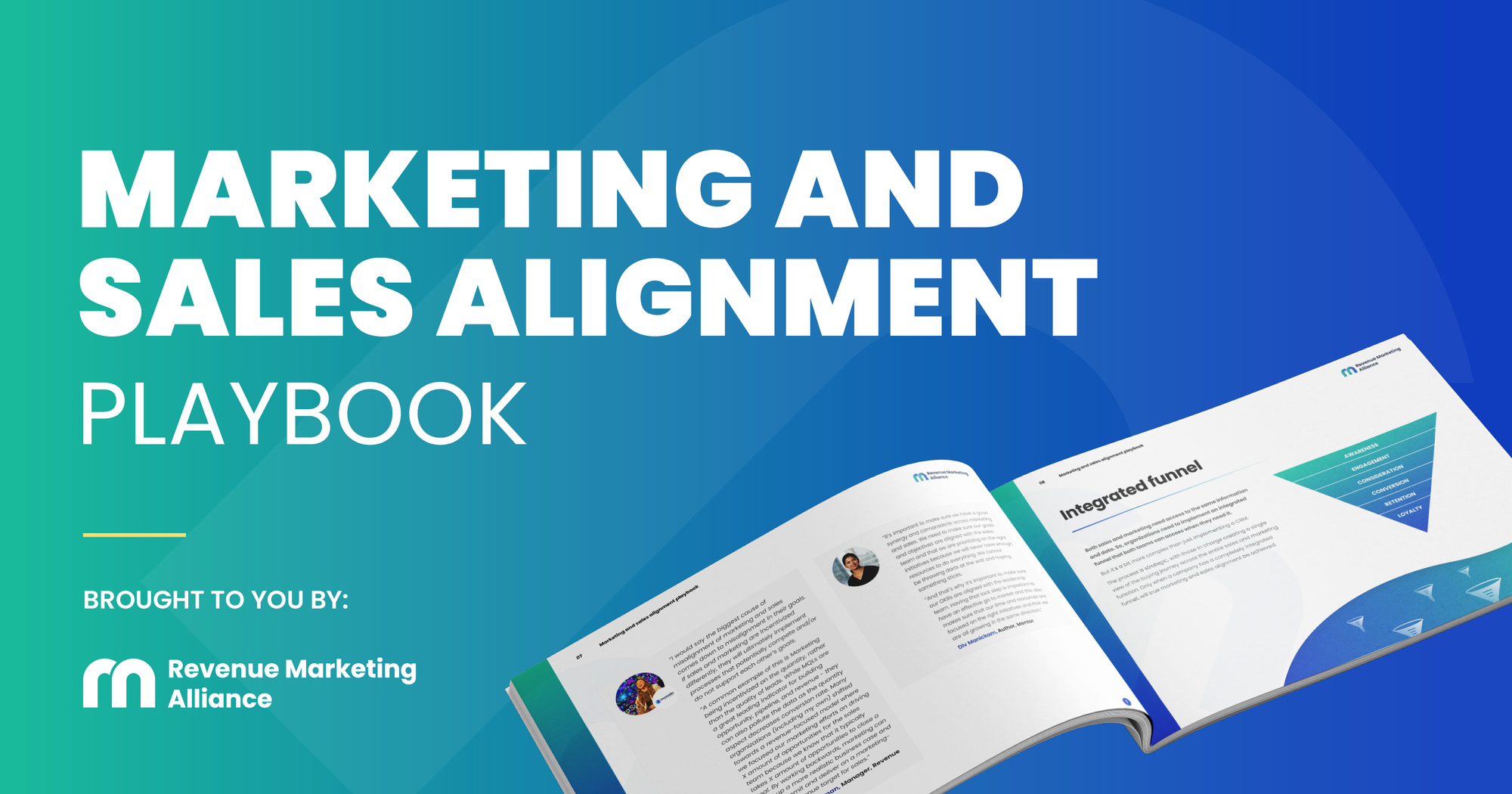In the whirlwind race for revenue growth, marketers are always on the lookout for fresh and ingenious strategies to drive their success.
This is where the power duo comes into play: Marketing Qualified Leads (MQLs) and Sales Qualified Leads (SQLs).
These two players hold pivotal roles in the customer journey, each bringing unique qualities and contributions that can make or break revenue generation.
In this article, we’ll delve into an approach to understanding and leveraging the potential of MQLs and SQLs for marketers seeking unparalleled revenue growth.
- What are MQLs and SQLs
- How to generate MQLs
- How to convert MQLs to SQLs
- Harnessing the power of MQLs
- Unlocking the potential of SQLs
But first… what's a lead?
What is a lead?
A lead is basically someone who has shown interest in what a business offers. It could be a person who signed up for a newsletter, filled out a form on a website, or even attended an event.
They’re potential customers or clients who have given their contact info or engaged with a business in some way, indicating that they might be interested in buying something. Sometimes leads provide just their basic info, while others might share more about their needs and preferences.

Unveiling the dynamics of MQLs and SQLs
The marketing and sales teams use criteria to categorize and qualify leads based on their potential value and readiness to make a purchase. This helps prioritize leads for targeted marketing and sales efforts aimed at turning them into customers. These leads are split into two types MQLs and SQLs.
What are MQLs and SQLs?
MQLs are leads that have shown interest or engagement with your marketing efforts. These are the leads that come in through activities like:
- Visiting your website,
- Downloading your content,
- Subscribing to your emails, or
- Interacting with you on social media.
These types of leads are at the early stages of the buyer's journey, still exploring their options and gathering information. The marketing team sets specific criteria to identify MQLs based on factors like demographics, behavior patterns, or lead-scoring models. However, MQLs require further nurturing and targeted marketing efforts to move them closer to becoming SQLs.
On the other hand, SQLs are leads that have been evaluated and deemed ready for direct sales engagement. These are the leads that have met certain criteria hinting at a higher likelihood of making a purchase.
SQLs have gone through a qualification process, often performed by the sales team, to determine their readiness for sales engagement. They align with the sales team's requirements, such as having:
- The budget,
- Decision-making authority,
- Need for the product or service, and
- A timeframe for making a decision.
These leads are further along in the buyer's journey and are actively considering making a purchase. Once identified, SQLs are passed from the marketing team to the sales team for direct sales outreach and personalized communication to convert them into customers.
How to generate MQLs
Let's discuss how MQLs can be generated through different marketing strategies, specifically, content marketing, social media platforms, SEO (search engine optimization), and lead nurturing.
Content marketing
When it comes to generating MQLs in content marketing, the key is creating valuable and relevant content that grabs people's attention. Whether it's blog posts, videos, eBooks, or webinars, the goal is to offer helpful information that appeals to your target audience.
By providing such valuable content, you can capture the interest of potential leads and encourage them to provide their contact information through forms or by downloading gated content.
Social media platforms
Social media platforms are great for engaging with your audience. By sharing compelling content, sparking conversations, and building a community, you can attract potential leads.
You can include links to your website or landing pages in your social media posts to drive traffic and capture their information. Plus, you can leverage social media advertising to target specific demographics and direct users to relevant offers or content, generating MQLs.
SEO
SEO is all about improving your website's visibility in search engine results. By optimizing your website's structure, content, and metadata, you can increase your chances of appearing in relevant searches.
When people find your website through search engines, they can become MQLs by taking actions like subscribing to newsletters or requesting more information.

Lead nurturing
Lead nurturing is about building relationships with potential leads over time. Once you have their contact information, you can nurture them through personalized email campaigns, tailored content, and automated workflows.
By delivering valuable and relevant information, you can educate and engage them, gradually turning them into SQLs who are ready for direct sales engagement.
How to convert MQLs to SQLs
Let’s now look at the conversion process from MQLs to SQLs. This process involves the active participation of the sales team, leveraging their expertise in qualifying leads.
Handoff from Marketing to Sales
Once the marketing team has done their part in identifying and nurturing MQLs, they hand them off to the sales team. This handoff usually happens when the MQLs meet specific criteria set by the marketing team, indicating that they have a good chance of becoming customers. Now, it's the sales team's turn to take the lead!

Sales qualification
The sales team gets down to work by qualifying the MQLs. This means they dive deeper into each lead to determine if they're ready for direct sales engagement.
The sales team uses their expertise to ask the right questions, have meaningful conversations, and gather more information about the leads. They look at things like the prospect's budget, decision-making authority, and how urgently they need the product or service.
Validation and disqualification
During this process, the sales team validates the information provided by the MQLs and does some additional research if needed. They want to make sure that the leads actually fit the criteria for becoming an SQL.
If an MQL doesn't meet the requirements or doesn't align with the target customer profile, they may be disqualified and considered a less promising lead. It's all about finding the best opportunities!
Sales engagement
Once an MQL qualifies as an SQL, the sales team rolls up their sleeves and engages in direct sales activities. They have personalized conversations with the SQLs, addressing their specific needs and pain points.
The goal is to show them the value of the product or service, build trust, and guide them through the rest of their buyer's journey. The sales team is there every step of the way, providing information, addressing objections, and working towards closing the deal.
Feedback loop
Throughout this whole process, there's a feedback loop between the sales team and the marketing team. The sales team shares valuable insights with marketing, giving feedback on the quality and viability of the MQLs they received.
This feedback helps the marketing team improve their lead generation strategies, ensuring they generate MQLs that have a higher chance of converting into SQLs and, ultimately, becoming customers.
Harnessing the power of MQLs
Quality over quantity
When it comes to MQLs, it's all about quality over quantity. Instead of just aiming for a huge number of leads, it's more effective to focus on generating high-quality MQLs by targeting specific demographics and tailoring your marketing efforts to engage potential customers effectively.
By understanding your target audience's characteristics and needs, you can create campaigns that really resonate with them. This approach increases the chances of attracting MQLs who are genuinely interested in what you offer, leading to higher conversion rates and better returns on your marketing investment.
Nurture and educate
Not every MQL is ready to make a purchasing decision right away. That's where lead nurturing comes in. It's all about building trust, establishing yourself as a thought leader, and guiding MQLs toward becoming SQLs.
Through lead nurturing programs, you can develop long-term relationships with potential customers by providing valuable and relevant content. By educating them about your industry, addressing their pain points, and offering solutions, you become a trusted advisor.
This process helps MQLs gain confidence in your brand, establishes credibility, and increases the likelihood of conversion as they progress through their buyer's journey.
Data-driven approach
A data-driven approach is all about using data analytics and marketing automation tools to track MQL behavior, measure engagement, and refine your marketing strategies. By analyzing data, you gain valuable insights into the preferences, behaviors, and patterns of your MQLs.
This information helps you identify the most effective marketing activities in generating high-quality MQLs. Marketing automation tools come in handy for automating lead nurturing workflows, delivering personalized content, and tracking interactions.
By looking at metrics like open rates, click-through rates, and conversions, you can fine-tune your marketing strategies, optimize your campaigns, and make data-informed decisions to improve your overall performance.
Unlocking the potential of SQLs
Collaboration is key
When it comes to converting MQLs into customers, collaboration between the marketing and sales teams is crucial. They need to work hand in hand and keep the communication flowing smoothly.
Marketing should share valuable insights about MQLs with the sales team, like their interests, engagement history, and pain points. This helps the sales team have meaningful conversations and personalized interactions with SQLs.
By collaborating effectively, both teams can optimize their efforts and ensure that SQLs have a consistent and seamless experience throughout the sales process.
Personalization for conversion
Personalization is a game-changer when it comes to converting SQLs into revenue-generating customers. With a wealth of information about SQLs, the sales team can tailor their approach, messaging, and sales techniques to each individual.
By understanding their specific needs, pain points, and preferences, the sales team can create a customized experience that truly resonates. This means personalized interactions, relevant product recommendations, and addressing specific concerns.
Effective sales techniques like active listening, understanding objections, and demonstrating value further enhance the personalization process, increasing the chances of closing deals successfully.
Post-sale retention
Retaining customers and nurturing post-sale relationships are vital for long-term revenue growth, and SQLs play a key role in initiating this process. Once SQLs become customers, it's important to continue providing value and keeping them engaged.
The sales team can contribute to post-sale retention by ensuring a smooth onboarding process, proactively addressing customer needs, and being a point of contact for ongoing support.
SQLs, who already have a relationship with the sales team, help facilitate a seamless transition into the post-sale phase, building strong and lasting customer relationships.
To wrap up
In the quest for revenue growth, marketers must recognize the power of MQLs and SQLs as catalysts for success.
By understanding the unique qualities of each lead type and implementing inventive strategies to harness their potential, marketers can fuel their revenue growth engine and propel their businesses to new heights.
Embrace the dynamic interplay of MQLs and SQLs, and witness the transformative power they hold in achieving unparalleled revenue acceleration.



 Follow us on LinkedIn
Follow us on LinkedIn



